
The Gang of Four was a Maoist political faction composed of four Chinese Communist Party (CCP) officials. They came to prominence during the Cultural Revolution (1966–1976) and were later charged with a series of treasonous crimes due to their responsibility for the excesses and failures in the Cultural Revolution. The gang's leading figure was Jiang Qing. The other members were Zhang Chunqiao, Yao Wenyuan, and Wang Hongwen.

Zhou Enlai was a Chinese statesman, diplomat, and revolutionary who served as the first Premier of the People's Republic of China from September 1954 until his death in January 1976. Zhou served under Chairman Mao Zedong and aided the Communist Party in rising to power, later helping consolidate its control, form its foreign policy, and develop the Chinese economy.

Hua Guofeng was a Chinese politician who served as Chairman of the Chinese Communist Party and Premier of the People's Republic of China. The designated successor of Mao Zedong, Hua held the top offices of the government, party, and the military after the deaths of Mao and Premier Zhou Enlai, but was gradually forced out of supreme power by a coalition of party leaders between December 1978 and June 1981, and subsequently retreated from the political limelight, though still remaining a member of the Central Committee until 2002.

The Tiananmen incident or the April 5 Tiananmen incident was a mass gathering and protest that took place on April 4–5, 1976, at Tiananmen Square in Beijing, China. The incident occurred on the traditional day of mourning, the Qingming Festival, after the Nanjing incident, and was triggered by the death of Premier Zhou Enlai earlier that year. Some people strongly disapproved of the removal of the displays of mourning, and began gathering in the Square to protest against the central authorities, then largely under the auspices of the Gang of Four, who ordered the Square to be cleared.
The Four Modernizations were goals formally announced by China's first Premier Zhou Enlai to strengthen the fields of agriculture, industry, defense, and science and technology in China. The Four Modernizations were adopted as a means of rejuvenating China's economy in 1977, following the death of Mao Zedong, and later were among the defining features of Deng Xiaoping's tenure as the paramount leader of China. At the beginning of "Reform and Opening-up", Deng further proposed the idea of "xiaokang" or "Moderately prosperous society" in 1979.

Field Marshal Plaek Phibunsongkhram, locally known as Marshal P., and contemporarily known as Phibun (Pibul) in the West, was a Thai military officer and politician who served as Prime Minister of Thailand from 1938 to 1944 and 1948 to 1957.
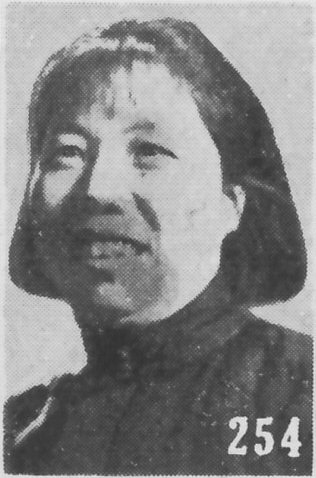
Deng Yingchao was the Chairwoman of the Chinese People's Political Consultative Conference from 1983 to 1988, a member of the Chinese Communist Party, and the wife of the first Chinese Premier, Zhou Enlai.
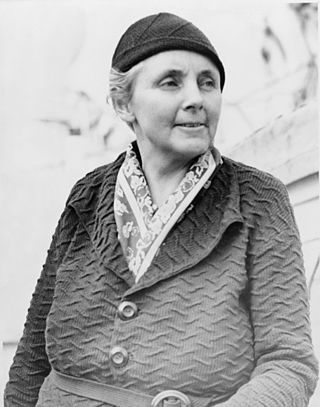
Anna Louise Strong was an American journalist and activist, best known for her reporting on and support for communist movements in the Soviet Union and the People's Republic of China. She wrote over 30 books and varied articles.
Sang Phathanothai was a Thai politician, union leader, and journalist. He was one of the closest advisors to Field Marshal Phibunsongkhram.
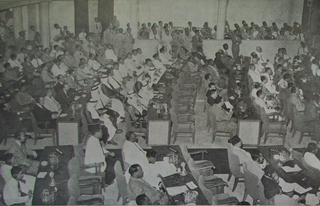
The first large-scale Asian–African or Afro–Asian Conference —also known as the Bandung Conference—was a meeting of Asian and African states, most of which were newly independent, which took place on 18–24 April 1955 in Bandung, West Java, Indonesia. The twenty-nine countries that participated represented a total population of 1.5 billion people, 54% of the world's population. The conference was organized by Indonesia, Burma (Myanmar), India, Ceylon, and Pakistan and was coordinated by Ruslan Abdulgani, secretary general of the Ministry of Foreign Affairs of the Republic of Indonesia.
Wang Kun was a Chinese opera singer, actress, musical director, and teacher specializing in revolutionary repertoire. She was most famous for her leading role in the opera The White Haired Girl, and her interpretations of songs such as "Nanniwan" (1943).

Lin Boqu was a Chinese politician and poet. An early supporter of Sun Yat-sen and member of the Tongmenghui, as well as a later participant in the Nanchang Uprising and the Long March, Lin came to be seen as one of the elder statesmen of the Chinese Communist Party.

Qiao Guanhua was a politician and diplomat in the People's Republic of China and played an important role in the talks with United States on the opening of China and the drafting of the Shanghai Communiqué.

China–Thailand relations officially started in July 1975 after years of negotiations. For a long time, Thailand, formerly called Siam, had good relations with China. China was usually greatly respected in Siam and ensured the alliance of both countries. However, after Plaek Phibunsongkhram attempted to erase and prohibit Chinese culture and influence in the country, relations were seriously damaged.
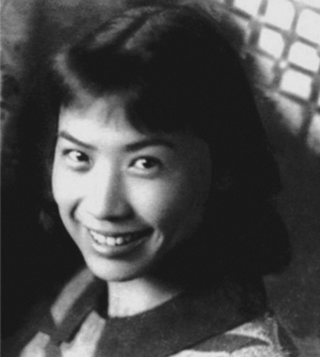
Sun Weishi was the first female director of modern spoken drama (Huaju) in Chinese history. Sun's father was killed by the Kuomintang (KMT) in 1927, and Sun was eventually adopted by Zhou Enlai, who later became the first premier of the People's Republic of China. While in Yan'an, Sun aroused the enmity of Mao's wife, Jiang Qing, beginning a rivalry between the two that lasted throughout Sun's life until her ultimate death at Jiang's hands. During World War II, Sun lived in Moscow, studying theater. Lin Biao was also in Moscow at the time and proposed to Sun before returning to China in 1942, but Sun rejected him. Lin married another woman, Ye Qun, in 1943. Ye held a lifelong grudge against Sun for her earlier relationship with Lin.

Liu Shaoqi was a Chinese revolutionary and politician. He was Chairman of the NPC Standing Committee from 1954 to 1959, first Vice Chairman of the Chinese Communist Party from 1956 to 1966 and Chairman of the People's Republic of China, the head of state, from 1959 to 1968, during which he implemented policies of economic reconstruction in China. For 15 years, Liu held high positions in Chinese leadership, behind only Chairman Mao Zedong and Premier Zhou Enlai. Although originally considered as a successor to Mao, from 1966 onward, Liu was criticized and then purged by Mao. Liu was arrested and imprisoned in 1967. He was forced out of public life and was labelled the "commander of China's bourgeoisie headquarters", China's foremost "capitalist-roader", and a traitor to the revolution. He died in prison in 1969 due to complications from diabetes.
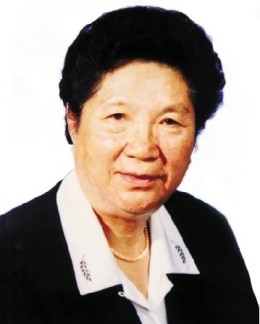
Chen Muhua was a Chinese Communist revolutionary and politician who served as Vice Premier, State Councilor, Minister of Foreign Economic Relations and Trade, Commissioner of the National Family Planning Commission, Governor of the People's Bank of China, and Chairwoman of the All-China Women's Federation. She was an alternate member of the Politburo of the Chinese Communist Party, one of the few women to have entered China's top decision-making body.

Xin Fengxia was a Chinese pingju opera performer, known as the "Queen of Pingju". She was also a film actress, writer, and painter. She starred in the highly popular films Liu Qiao'er (1956) and Flowers as Matchmakers (1964), both adapted from her operas.

Lei Jieqiong, also known as Kit King Lei, was a Chinese sociologist, activist, and politician. Educated in the United States, she taught at Yenching University, China University of Political Science and Law, and Peking University in Beijing and Soochow University, St. John's University, University of Shanghai, and Aurora University in Shanghai. She was a cofounder of Zhongzheng University in Jiangxi during the Second Sino-Japanese War.

Wang Guangying was a Chinese entrepreneur and politician. He was one of the most prominent "red capitalists", a title bestowed on him by Premier Zhou Enlai. He founded Modern Chemical Works in the 1940s and served as Founding Chairman of China Everbright Group in the 1980s. His sister Wang Guangmei was the wife of President Liu Shaoqi, and for that connection he was persecuted and imprisoned during the Cultural Revolution, when Liu was ousted by Chairman Mao Zedong. Wang was rehabilitated after Mao's death and served as Vice Chairperson of the Chinese People's Political Consultative Conference (CPPCC) and Vice Chairperson of the National People's Congress (NPC).

















